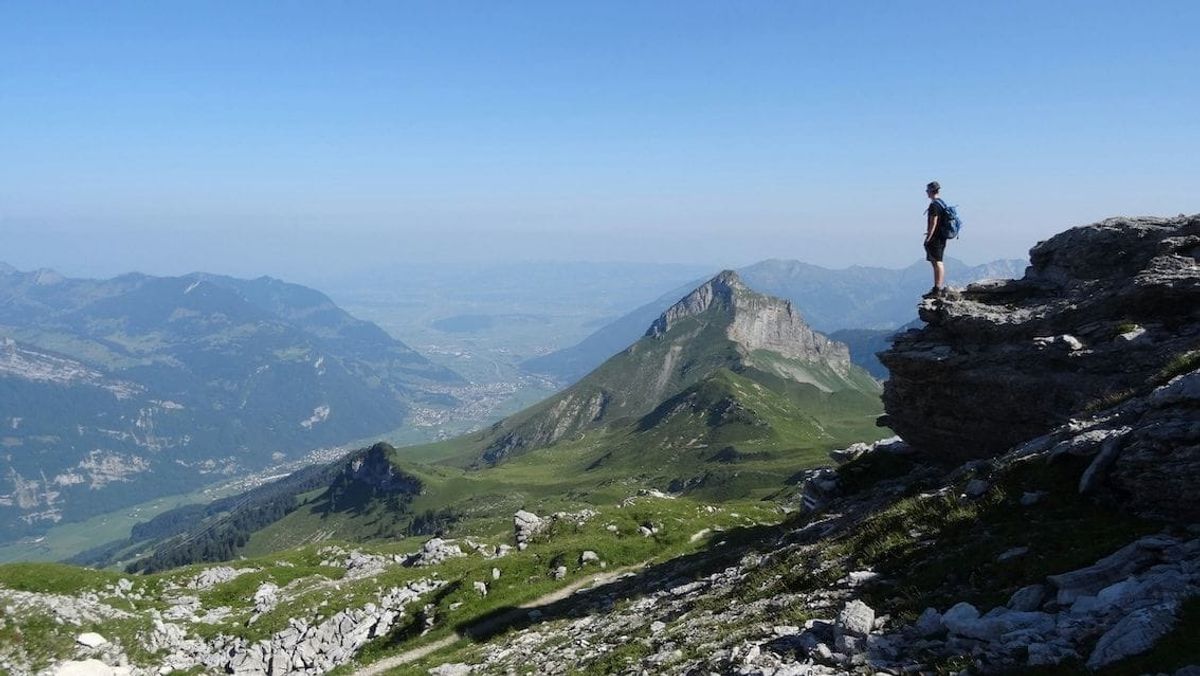Top Tourism Marketing Techniques

Tourism marketing promotes destinations, attractions, and travel services to potential customers. Good tourism marketing goes beyond showing a place; it creates an experience that attracts travelers and leaves a lasting impression.
Quick Summary
Effective tourism marketing focuses on creating memorable experiences and understanding the target market, integrating traditional and digital strategies for engagement. A solid marketing plan includes clear objectives and the use of content marketing, optimized websites, and mobile-friendly features. Leveraging social media and influencer partnerships increases visibility and connection with potential travelers. Overall, flexibility and adaptability in approach are crucial, as well as ongoing r
New strategies are key to success in the ever-changing tourism industry; they can attract tourists, retain happy customers, and give you a competitive edge.
Remember, while this post provides some ideas, conducting independent research is encouraged to tailor any ideas to specific needs.
Ready to Grow Your Business?
Get a free consultation and custom strategy tailored to your goals.
Tourism Marketing in Business Growth

Tourism marketing is about driving sales, building a brand, and measuring the success of your marketing. But beyond that, it's about local attractions, creating memorable experiences, and credibility in the tourism industry.
Good tourism marketing is about understanding your target market and the customer experience throughout the entire customer journey.
Tourism Marketing Techniques

Tourism Marketing Plan
A tourism marketing plan is a blueprint for reaching and engaging with potential visitors. It combines traditional marketing with modern digital marketing channels, so you have a complete approach.
Good tourism marketing means understanding your target market and using social media, email marketing, and search engines to attract customers.
Add innovation to that, and you'll cut through the noise.
Who is Your Target Market, and Create Buyer Personas

Understanding your market is essential for creating an effective tourism marketing strategy.
Creating buyer personas can helps you refine your marketing messages to specific demographics, interests, and travel habits.
Tour operators and destination marketing organizations can use social media trends, customer surveys, and website analytics to adapt to changing customer needs.
Personalized marketing may work better with potential visitors.
Set Clear Objectives

Clear objectives can be key to good tourism marketing.
Whether it's to attract tourists to a specific place, increase online bookings, or improve customer satisfaction, measurable objectives will guide the process.
Key performance indicators (KPIs) such as increased social media engagement, higher conversion rates, or more happy customers give you tangible results to work with. Good marketing channels can be adjusted based on that.
Content Marketing

Content for Tourism Businesses
Content marketing can be key to getting the attention of potential visitors. Showcasing local attractions, sharing insider tips, and featuring user-generated content can give an authentic look into the destination's unique offerings.
Engagement marketing strategies like writing blog posts and creating mobile video content can attract customers by highlighting the experiential nature of travel.
Create an Experiential Website
A good website is the foundation of tourism marketing.
From virtual tours to seamless online bookings, every feature can enhance the customer experience. A responsive design and fast page loading times are crucial for mobile devices as many travelers use them for research and booking.
A personalized marketing approach to your ideal customer means the website is tailored to their needs and expectations.
Mobile Focus
Mobile video content and apps are now a must-have in tourism marketing.
Ready to Grow Your Business?
Get a free consultation and custom strategy tailored to your goals.
With many potential customers using mobile to plan and book their trips, mobile optimization is essential.
Make the user experience seamless on mobile, and it can improve engagement, more online community participation, and easier everyday booking tasks for tour and activity providers.
Social Media and Influencer Marketing

Use Social Media for Tourism Marketing
Social media can be key to tourism marketing.
Platforms like Instagram, Facebook, and X can give you the opportunity to showcase your destination through visual content.
Social media posts featuring user-generated content and destination-specific hashtags can attract visitors and increase reach.
Social media advertising can help you target specific groups of people.
Engage with potential visitors through comments and interactive content, and you can enhance the overall customer experience.
Engage with Social Media Influencers and Micro-Influencers

Influencer marketing can be a powerful tool in tourism. Working with influencers who vibe with your brand and audience can boost your credibility and get you noticed more.
Some micro-influencers can have highly engaged audiences and often focus on niche markets. Partner with them, and your marketing messages might resonate with your ideal customer, creating authentic connections and trust.
Create Immersive Content with Reels
Reels and live video content are now part of social media trends in tourism. Virtual tours and real-time experiences may allow potential visitors to explore destinations from their living rooms.
Use these formats to showcase attractions, share stories, or give a sneak peek into upcoming events, and you can create excitement and engagement.
Search Engine Optimisation (SEO)

Optimize Your Website for Search
SEO can be key to being visible in the digital tourism landscape.
Keyword research can help you find out what your customers are searching for during research and booking.
Enhancing on-page optimization and creating a user-friendly website is important for improving search rankings and attracting visitors.
Search Engine Marketing
Search engine marketing (SEM) complements SEO by increasing visibility through paid ads.
These include targeted ad campaigns that drive traffic and conversions.
Ready to Grow Your Business?
Get a free consultation and custom strategy tailored to your goals.
Use analytics to monitor performance and adjust bids and keywords based on data, and you'll use your resources efficiently.
This combination of organic and paid will amplify your tourism marketing.
Conclusion

Creating a tourism marketing strategy often require a thoughtful blend of new ways, audience insight, and flexible tactics.
While these tips are a good starting point, do your own research and tailor it to your business needs.
In tourism, flexibility and adaptability can help you make meaningful connections with travelers and achieve marketing success.
Whether it's experiential marketing, influencer partnerships, or optimizing digital channels, the opportunities can be there.
With the right strategies, it can be possible to attract visitors and create experiences.
Email Marketing and Customer Retention Strategies
Email marketing remains one of the most cost-effective tourism marketing channels, delivering an average ROI of $42 for every dollar spent. Successful tourism businesses leverage segmented email campaigns to nurture leads through the entire customer journey, from initial destination research to post-trip follow-up. Create automated email sequences that deliver personalized travel itineraries, local weather updates, and exclusive offers based on traveler preferences and booking history.
Retention marketing is equally crucial in tourism, where acquiring repeat customers costs significantly less than attracting new ones. Implement loyalty programs that reward frequent travelers with exclusive experiences, early booking discounts, or room upgrades. Send personalized birthday offers, anniversary trip suggestions, and seasonal destination recommendations to keep your brand top-of-mind. Post-trip email surveys not only gather valuable feedback but also provide opportunities to encourage reviews and referrals.
Consider implementing dynamic email content that adapts based on subscriber behavior and preferences. For example, send beach destination promotions to subscribers who previously booked coastal trips, or adventure travel content to those who engaged with outdoor activity emails. Use behavioral triggers like cart abandonment emails for incomplete bookings, or destination-specific newsletters for travelers who viewed particular locations on your website.
Partnership Marketing and Collaborative Strategies
Strategic partnerships can exponentially expand your tourism marketing reach while reducing costs. Collaborate with complementary businesses such as hotels, restaurants, local attractions, and transportation providers to create package deals that offer enhanced value to travelers. Cross-promotional partnerships with airlines, travel insurance companies, and tourism boards can help you tap into established customer bases and build credibility through association.
Develop affiliate marketing programs that incentivize travel bloggers, content creators, and other tourism businesses to promote your services. Offer competitive commission structures and provide partners with high-quality marketing materials, including professional photos, video content, and pre-written promotional copy. Track partnership performance through unique promo codes and dedicated landing pages to measure ROI and optimize your most successful collaborations.
Consider joining or creating tourism consortiums and destination marketing cooperatives where multiple businesses pool resources for larger marketing campaigns. These collaborative efforts can fund professional advertising campaigns, trade show participation, and familiarization trips for travel agents and media representatives that individual businesses might not afford independently. Establish clear partnership agreements that outline responsibilities, revenue sharing, and performance expectations to ensure successful long-term collaborations.
Data Analytics and Performance Measurement
Tourism marketing success depends heavily on data-driven decision making and continuous performance optimization. Implement comprehensive analytics tracking across all marketing channels, including website behavior, social media engagement, email open rates, and conversion funnels. Use tools like Google Analytics 4, social media insights, and customer relationship management (CRM) systems to gather actionable data about customer preferences, booking patterns, and revenue attribution.
Establish key performance indicators (KPIs) that align with your business objectives, such as cost per acquisition (CPA), customer lifetime value (CLV), booking conversion rates, and average booking value. Create monthly performance dashboards that track these metrics across all marketing channels, allowing you to identify trends, optimize underperforming campaigns, and scale successful strategies. Pay particular attention to seasonal booking patterns and adjust your marketing calendar accordingly.
Leverage predictive analytics to anticipate travel trends and customer behavior. Analyze historical booking data to predict peak seasons, popular destinations, and customer segments most likely to convert. Use A/B testing for email subject lines, ad copy, landing pages, and social media content to continuously improve performance. Implement customer feedback loops through post-trip surveys, online reviews monitoring, and social media listening to gather qualitative insights that complement your quantitative data.
Ready to Grow Your Business?
Get a free consultation and custom strategy tailored to your goals.
Frequently Asked Questions
What are the most effective tourism marketing techniques for small businesses?
Small tourism businesses should focus on content marketing, social media engagement, and local SEO optimization. Creating authentic content showcasing local attractions, partnering with micro-influencers, and optimizing your website for local search terms are cost-effective strategies. User-generated content from satisfied customers can build credibility without large budgets. Mobile optimization is crucial since travelers frequently use smartphones for research and bookings.
How do you create buyer personas for tourism marketing?
Create tourism buyer personas by analyzing customer demographics, travel habits, and preferences through surveys, website analytics, and social media insights. Consider factors like age, income, travel frequency, preferred booking methods, and destination interests. Interview past customers to understand their decision-making process. Use this data to develop 3-4 detailed personas representing your ideal visitors, including their pain points and motivations for traveling.
Why is mobile optimization important for tourism websites?
Mobile optimization is critical because most travelers use smartphones to research destinations, compare prices, and make bookings. A responsive website with fast loading times improves user experience and search engine rankings. Mobile-optimized sites should feature easy navigation, streamlined booking processes, and touch-friendly buttons. Poor mobile experience leads to high bounce rates and lost bookings, as travelers quickly move to competitor sites.
How can micro-influencers help tourism marketing campaigns?
Micro-influencers with 1,000-10,000 followers often have highly engaged, niche audiences that trust their recommendations. They're more affordable than major influencers and create authentic content about destinations. Their followers typically share similar interests, making targeting more precise. Micro-influencers can showcase local experiences, hidden gems, and genuine reactions, building credibility and driving bookings from travelers seeking authentic recommendations rather than obvious advertisements.
What SEO strategies work best for tourism businesses?
Tourism SEO should focus on location-based keywords, creating destination guides, and optimizing for "near me" searches. Include local attractions, activities, and accommodation options in your content. Build local citations and encourage customer reviews on Google My Business. Create comprehensive destination pages with practical information like weather, transportation, and costs. Use schema markup for events and attractions to enhance search visibility and featured snippet opportunities.
How do you measure tourism marketing success effectively?
Track key performance indicators including website traffic, conversion rates, booking values, and customer acquisition costs. Monitor social media engagement rates, follower growth, and user-generated content. Use Google Analytics to measure destination page views, time on site, and booking funnel completion rates. Survey customers about their decision-making process and track repeat visitors. Set specific, measurable objectives like increasing bookings by 20% or improving customer satisfaction scores.
What content marketing strategies attract tourists most effectively?
Create immersive content including virtual tours, destination guides, and insider tips from locals. Share user-generated content and customer stories to build authenticity. Develop seasonal content highlighting different experiences year-round. Use video content showcasing attractions, local culture, and unique experiences. Blog about hidden gems, local events, and practical travel advice. Interactive content like quizzes and polls can engage potential visitors and provide valuable audience insights.
Related Articles

Proven Travel SEO Strategies and Tips for Better SERP Rankings
The visibility of your business online is essential for attracting customers in the highly competitive travel industry. This is where travel SEO (Search Engine Optimization) comes into play. SEO f

How to Promote Your Online Store
In today’s digital world promoting online is key to any ecommerce business. With more and more people getting online and more devices to get online with, more people are shopping online than ever.

Navigating the Intricacies of Online Marketing
Online marketing is no longer optional; it's a crucial component of any business strategy. From social media and SEM (search engine marketing) to email campaigns and content creation, online market